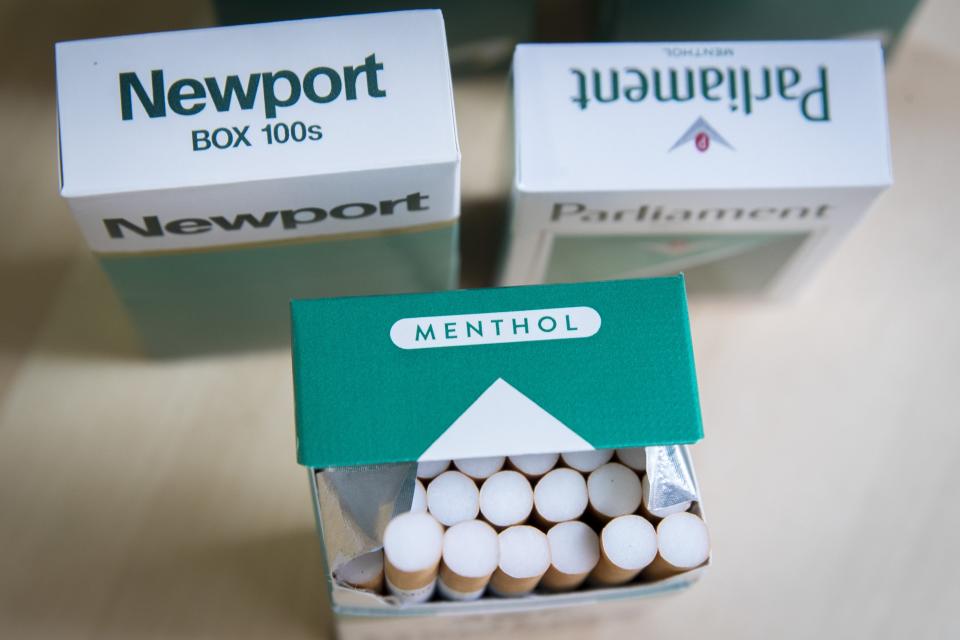American Lung Association report gives failing grades to PA tobacco control efforts
As many communities across the United States continue efforts to curb negative smoking habits, researchers have shared criticism of the slow progress of tobacco control in Pennsylvania.
Officials from the American Lung Association released their annual "State of Tobacco Control" report on Wednesday, which gave multiple failing grades to the efforts of Pennsylvania lawmakers. While the state was not ranked as the worst in terms of tobacco control, researchers remained critical of the exemptions provided in the Clean Indoor Air Act and lack of state guidelines and inequality in taxes on alternative tobacco products.
"Tobacco use is the leading cause of death in Pennsylvania and across the country and takes the lives of 22,010 state residents each year," said Aimee Van Cleave, director of advocacy at the American Lung Association in Pennsylvania. "The tobacco industry will do anything to protect their profits at the expense of Pennsylvania lives, so we must push forward in our efforts to prevent and reduce tobacco use. This year, we are working with state policymakers to focus on closing the loopholes in the Clean Indoor Act to prohibit smoking in all workplaces, including bars and casinos and expanding state funding for tobacco control programs.”
In addition to criticisms of Pennsylvania, the report discussed the national trends among flavored tobacco products that have been appealing to underage smokers and the continued effects of the targeted marketing of menthol cigarettes to minorities in the United States. Efforts to ban menthol and control flavored e-cigarette sales have been a challenge for the federal government in recent years, resulting in many issues for populations that they target in their sales.
What are the current challenges with regulating tobacco?
According to the American Lung Association, one of the biggest challenges in regulating tobacco is the widespread popularity of flavored products. While several states have taken steps to end the sale of flavored tobacco products, there are no national regulations on their sale and Pennsylvania does not currently have any restrictions on the sale of flavored tobacco products.
Researchers have pointed to the availability of flavored tobacco as the leading cause of underage smoking. In the CDC's 2023 National Youth Tobacco Survey, over 86% of youth smokers reported that they buy flavored products when purchasing tobacco. While flavored e-cigarettes are illegal in the United States, they are still widely available for purchase.

Several cheap e-cigarette brands popular with underage smokers, such as Elf Bar, have been banned from being imported to the United States for not meeting these FDA regulations. Despite this ban on imports, the vapes are still found for sale in communities across the country and the Chinese manufacturer of the e-cigarette has been successful in smuggling the devices into the country through name changes and mislabeling their shipments.
As a result of the ease of access and appealing flavors, it is estimated that 12.6% of high school students and 6.6% of middle school students are actively using tobacco products. The actual percentage of underaged smokers is also likely much higher than this data, as the CDC's surveying methods rely on the students' choice to disclose their smoking habits.

In addition to the fruity flavors associated with mini cigars and e-cigarettes, health officials have pointed to menthol tobacco as another leading cause of health issues. According to the American Lung Association, menthol has been linked to an increase in the likelihood of cigarette addictions and a higher degree of addiction among those who use those products.
Federal efforts have been made to prohibit the sale of menthol cigarettes, but have repeatedly been delayed by lawmakers. Members of the House of Representatives' Committee on Appropriations have made several legislative policies that would protect menthol cigarettes, including efforts to eliminate the CDC's Office on Smoking and Health. At the end of last year, a plan to end the sale of menthol cigarettes was also delayed by the Biden administration and the policy is expected to be delayed again when it is evaluated in 2024.
One of Pennsylvania's unique challenges is the exceptions allowed in the Clean Indoor Air Act, a piece of legislation prohibiting smoking in the workplace and spaces that the law considers a "public place." The law, while helpful in preventing secondhand smoke in many of these spaces, still allows for social spaces such as bars and casinos to allow indoor smoking.

This exception can be especially harmful to employees in these spaces, who are exposed to secondhand smoke for extended periods. Officials from the American Lung Association have met with lawmakers to expand awareness of this issue, stressing that there are no ventilation systems that can remove this risk and protect unwilling employees from inhaling smoke.
Another issue unique to Pennsylvania is unequal state taxes on tobacco products, as non-cigarette tobacco, such as cigars and vapes, see significantly lower fees. As of 2016, smokers across the majority of Pennsylvania must pay a tax of $2.60 per pack of cigarettes, with some areas seeing higher local taxes on the product. Despite a clear rate on cigarettes, alternative options for tobacco face different tax rates and may only charge those selling the products, with items such as cigars having no special taxes applied to sales in Pennsylvania.
This article originally appeared on Beaver County Times: New report gives failing grades to PA tobacco control efforts

